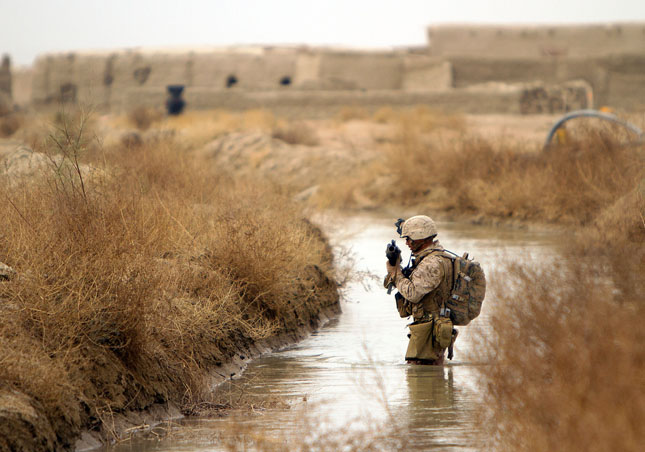-
Keith Johnson, Foreign Policy
Pentagon Directive Quietly Makes Climate Change Long-Term Priority
March 24, 2016 By Wilson Center Staff
In the middle of January, Deputy Secretary of Defense Robert Work signed off on one of the potentially most significant, if little-noticed, orders in recent Pentagon history. The directive told every corner of the Pentagon, including the office of the secretary of defense, the joint chiefs of staff, and all the combatant commands around the world, to put climate change front and center in their strategic planning.
“All DoD operations worldwide,” the directive began, “must be able to adapt current and future operations to address the impacts of climate change in order to maintain an effective and efficient U.S. military.” Pentagon directives stay in place for 10 years unless explicitly rescinded, a move that is rarely taken. That means the military’s focus on climate change won’t likely be disappearing anytime soon regardless of who wins the 2016 election.
With the 12-page Pentagon memo, following a similar White House executive order, President Barack Obama took a quiet but important step toward cementing his legacy in an area that clearly has become critical for him: preparing to deal with the security risks of a rapidly morphing natural world.
“ISIS is not an existential threat to the United States,” Obama recently told The Atlantic, referring to the Islamic State. “Climate change is a potential existential threat to the entire world if we don’t do something about it.”
Continue reading on Foreign Policy.
Sources: The Atlantic, Foreign Policy, U.S. Department of Defense.
Photo Credit: A U.S. Marine in Helmand Province, Afghanistan, February 2012, courtesy of Alfred V. Lopez/U.S. Marines.
Topics: Africa, Asia, climate change, conflict, environment, environmental security, foreign policy, Middle East, military, security, Syria, U.S., water
 A Publication of the Stimson Center.
A Publication of the Stimson Center.



